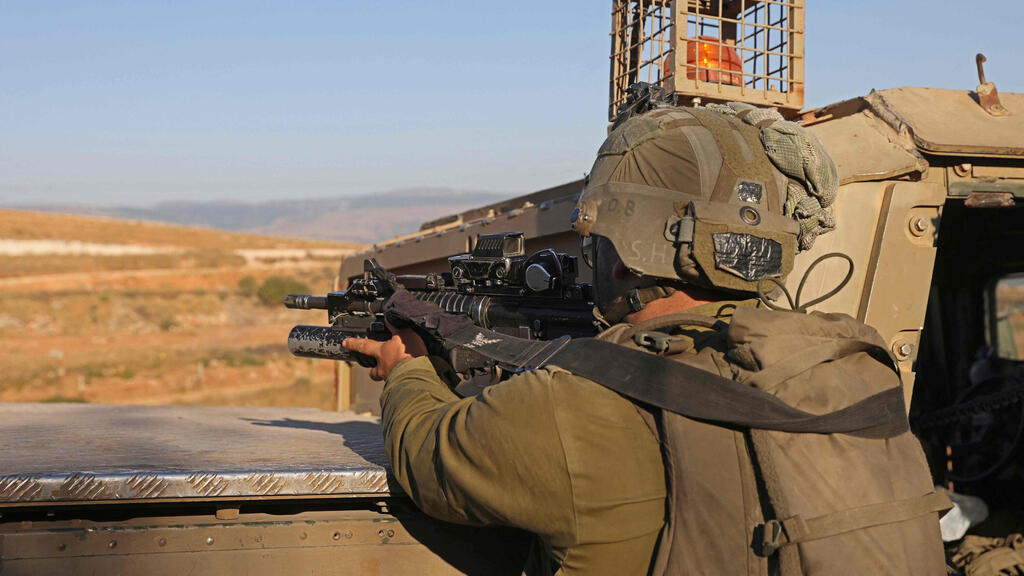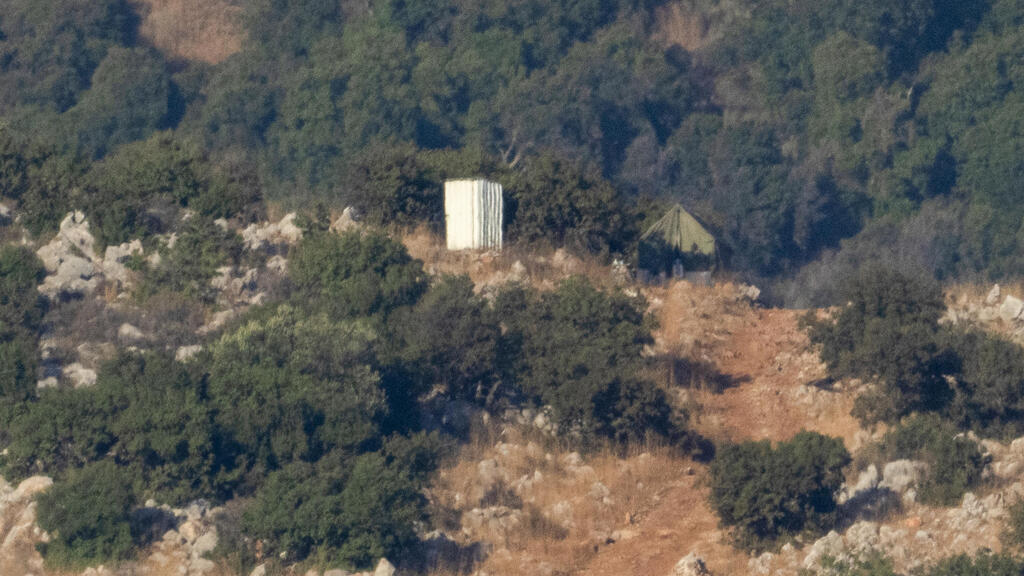Getting your Trinity Audio player ready...
A Hezbollah operative in Lebanon threw a Molotov cocktail at the Israeli side of the perimeter fence in the Metulla area on Sunday evening, damaging a water carrier. The IDF force on the scene responded by firing warning shots. So far, the Shiite terrorist organization has not responded to the incident, nor has any documentation of the incident been made public from the Lebanese side.
HEZBOLLAH NO LONGER MANNING TENT SET UP INSIDE ISRAEL
(ILTV)
Read more:
The IDF has already deployed extra troops along the border to prevent the permanent presence of troublemakers and Hezbollah provocateurs. This is in parallel with the preparation for a discussion at the United Nations in New York that is expected to take place in the coming days and will revolve around the renewal of the mandate of the Interim United Nations Force in Lebanon (UNIFIL) in southern Lebanon.
2 View gallery


An Israel Defense Forces soldier holds his position on the border with Lebanon
(Photo: Jalaa Marey / AFP)
Representatives of the IDF and the government are expected to demand at the UN that UNIFIL inspectors enforce the cease-fire agreement between Israel and Hezbollah that was signed at the end of the Second Lebanon War, and has been violated even more seriously in recent months by the terrorist organization. Also, Israel will continue to demand the removal of Hezbollah's tent from Mount Dov.
Against the backdrop of tensions on the Lebanese border and Hezbollah's repeated provocations, Defense Minister Yoav Gallant sent a message to the Lebanese terrorist organization last week referring to the Mount Dov area, where one of Hezbollah's tents is still standing.
"I warn Hezbollah and (Hezbollah leader Hassan) Nasrallah not to make a mistake. You made mistakes in the past and paid very heavy prices. If, God forbid, an escalation or conflict develops here - we will return Lebanon to the Stone Age," said Gallant.
The defense minister added that "we will not hesitate to use all our power, and wear out every inch of Hezbollah and Lebanon if we have to," and noted that "we know how to protect the citizens of Israel and the State of Israel in every way. The enemy should understand that when it comes to Israel's security - all of us are united."
There has been an escalation on the northern border in recent months. In a situation assessment published about a month ago, the research staff of the Alma Center for the Study of Security Challenges in the North reported: "We recognize a clear pattern of Hezbollah in the last month and a half to create friction and escalation in the areas of dispute on the Blue Line" - the dividing line between Israel and Lebanon according to a UN resolution.
The research institute in the Galilee stated that those areas, 13 in number, are the ones that Lebanon claims were taken from them by Israel.
2 View gallery


The Hezbollah tent erected on Israeli territory on Mount Dov
(צילום: AP Photo/Ohad Zwigenberg)
The first of these incidents, which according to the institute's researchers are "a leap forward and a trend that will continue to escalate," took place in June with the disclosure of the invasion of Hezbollah fighters into the sovereign territory of the State of Israel on Mount Dov and the establishment of two tents, which were manned by armed forces. But some will say that the beginning of the escalation was a barrage of 34 rockets that were fired into Israel from Lebanon in about half an hour during Passover - the heaviest barrage seen on the northern border since 2006, the days of the Second Lebanon War.
Despite the research institute's findings, in recent weeks there has been a decrease in incidents at the Lebanese border, since the IDF activated a stun grenade last month that injured a number of Hezbollah operatives who tried to sabotage the border fence. The IDF spokesman's statement about the incident noted that "the identity of the suspects is unknown" - but later Gallant said that these were Hezbollah operatives, and the terrorist organization confirmed it.




